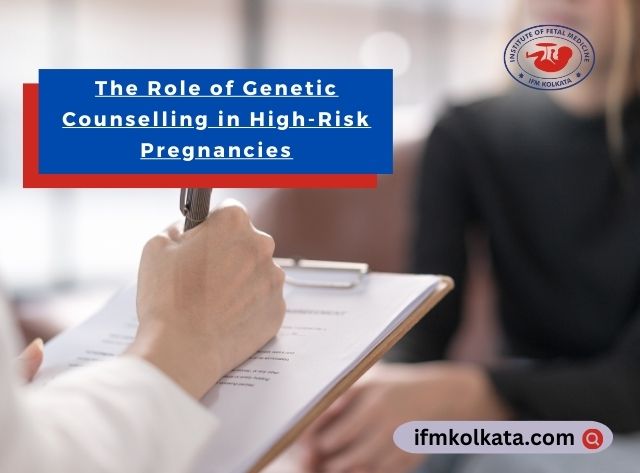Genetic counselling plays a vital role in managing high-risk pregnancies, especially when there’s a potential for genetic disorders. In high-risk pregnancies, genetic counsellors work closely with families to assess the risks of passing on genetic conditions, help them understand complex medical information, and support informed decision-making.
Genetic counselling typically begins with gathering family medical histories and evaluating factors such as maternal age, known genetic mutations, or exposure to harmful substances during pregnancy. Based on this information, the counsellor may recommend specific genetic tests to identify possible risks to the fetus, such as non-invasive prenatal testing (NIPT), amniocentesis, or chorionic villus sampling (CVS). These tests can help detect chromosomal abnormalities, like Down syndrome, or single-gene disorders like cystic fibrosis or sickle cell anaemia.
In high-risk pregnancies, genetic counselling provides emotional support and guidance. Counsellors help parents interpret test results and explain possible outcomes, such as the likelihood of a genetic condition and the severity of symptoms. They also discuss options for managing the pregnancy, including specialized prenatal care or the possibility of treatment for the condition after birth.
For families facing difficult decisions, such as whether to continue a pregnancy after receiving a diagnosis, genetic counsellors offer compassionate support without judgment. They provide clear, evidence-based information to help families make choices that align with their values and circumstances.
Genetic counselling is a crucial resource in high-risk pregnancies, helping parents navigate complex genetic information and empowering them to make informed decisions about their pregnancy and future child’s health.

